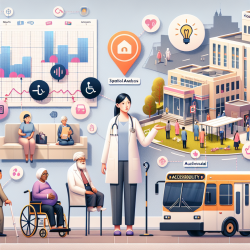Understanding the Impact of Cortisol on Youth Mental Health During COVID-19
The COVID-19 pandemic has posed unprecedented challenges to mental health, particularly among adolescents. Recent research published in the Research on Child and Adolescent Psychopathology journal provides valuable insights into how physiological stress responses, specifically cortisol levels, have changed during the pandemic and their association with adolescents' perceived affect.
Key Findings from the Research
The study, titled "Increases in Circulating Cortisol during the COVID-19 Pandemic are Associated with Changes in Perceived Positive and Negative Affect among Adolescents," utilized hair cortisol concentration (HCC) measurements to assess changes in stress levels among adolescents aged 10 to 18. The findings revealed significant increases in cortisol levels following local lockdowns, which were predictive of changes in affective well-being.
Implications for Practitioners
For practitioners providing online therapy services, these findings underscore the importance of considering physiological markers like cortisol in understanding and addressing mental health challenges. Here are some actionable insights for practitioners:
- Integrate Physiological Assessments: Consider incorporating assessments of physiological stress markers, such as cortisol, into your practice. This can provide a more comprehensive understanding of a child's stress levels and inform tailored interventions.
- Focus on Resilience Building: Given the association between increased cortisol and negative affect, emphasize resilience-building strategies in therapy. Techniques such as mindfulness, stress management, and positive reinforcement can help mitigate stress impacts.
- Enhance Support Networks: Encourage the development of robust support networks for adolescents. Social support can buffer against stress and improve mental health outcomes, especially during periods of isolation.
Encouraging Further Research
While the study provides critical insights, it also highlights the need for further research. Practitioners are encouraged to contribute to this growing body of knowledge by exploring the following areas:
- Longitudinal Studies: Conduct longitudinal studies to track changes in cortisol and mental health over time, providing deeper insights into the long-term impacts of the pandemic on youth.
- Diverse Populations: Research involving diverse populations can help identify unique stressors and resilience factors across different demographic groups.
- Intervention Efficacy: Investigate the effectiveness of various therapeutic interventions in modulating cortisol levels and improving mental health outcomes.
By leveraging the insights from this research, practitioners can enhance their therapeutic approaches and contribute to better mental health outcomes for adolescents during and beyond the pandemic.
To read the original research paper, please follow this link: Increases in Circulating Cortisol during the COVID-19 Pandemic are Associated with Changes in Perceived Positive and Negative Affect among Adolescents.










